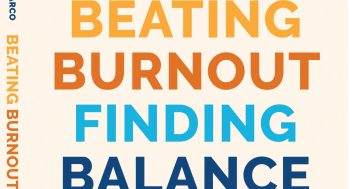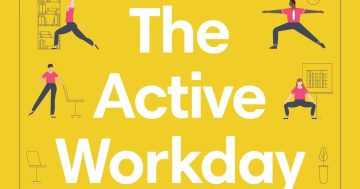Michelle Bakjac* says emotional intelligence supports the coping abilities that help people deal with chronic stress and prevent burnout.
 Stress and burnout are not the same thing.
Stress and burnout are not the same thing.
While we know that stress often leads to burnout, it’s possible to handle the onslaught of long hours, high pressure, and work crises.
It can be done in a way that safeguards you from the emotional exhaustion, cynicism, and a lack of confidence in one’s abilities that characterises burnout.
Research suggests that emotional intelligence (EI) supports superior coping abilities and helps people deal with chronic stress and prevent burnout.
Emotional self-awareness, one of the components of EI, for example, allows us to understand the sources of our frustration or anxiety.
It improves our ability to consider different responses.
Self-management, another EI competency, allows us to stay calm, control impulses, and act appropriately when faced with stress.
Conflict management skills allow us to channel our anxiety and emotions into problem-solving mode rather than allowing the situation to keep us up all night.
Empathy also helps to fight stress. When we actively try to understand others, we often begin to care about them.
Compassion, as with other positive emotions, can counter the physiological effects of stress.
Attuning to other people’s perspectives, attitudes, and beliefs contributes to our ability to gain trust and influence others.
This, on a very practical level, often means we get the help we need before stress spirals into burnout.
People do all kinds of destructive things to deal with stress — they overeat, abuse drugs and alcohol, and push harder rather than slowing down.
Instead, you might want to try the following.
Don’t be the source of your stress:
Too many of us create our own stress, with its full bodily response, merely by thinking about or anticipating future episodes that might be stressful.
People with a high need to achieve or who have perfectionist tendencies, may be more prone to creating their own stress.
Recognise your limitations:
Becoming more aware of your strengths and weaknesses will clue you in to where you need help.
People who recognise when the demands are outweighing their abilities ask for help.
Take deep breaths:
Mindfulness helps us to deal with immediate stressors and long-term difficulties.
Several participants in a study described using mindfulness techniques to slow their heart rate and bring their tension level down when faced with a stressor.
Heightening your awareness of your breathing may be difficult at first, for example, but remember that attention is the ultimate act of self-control.
Re-evaluate your perspective of the situation:
Do you view a particular situation as a threat? Or do you view it as a problem to be solved?
Changing your perspective on whether you’re experiencing distress or eustress can have an eye-opening effect on your ability to bring your stress level down.
De-escalate conflicts by putting yourself in the other person’s shoes:
The stress from conflicts often leads to burnout so it’s best to de-escalate conflicts when you can.
Be inquisitive, ask questions, listen deeply.
Keep your attention to the other person and focus on what they are trying to tell you.
By seeking to understand their perspective, you’ll be in a much better position to gain their trust and influence them.
By using and developing your emotional intelligence, you can put a stop to burnout—for you, and for others.
Remember, though: Improving EI takes time and effort.
Be patient with yourself, as well as forgiving and kind. The last thing you want to do is to make improving your EI another source of stress.
*Michelle Bakjac is an experienced Adelaide-based psychologist, organisational consultant, coach, speaker and facilitator and a Director of Bakjac Consulting. She can be contacted at [email protected].
This article first appeared on the Bakjac Consulting website.











